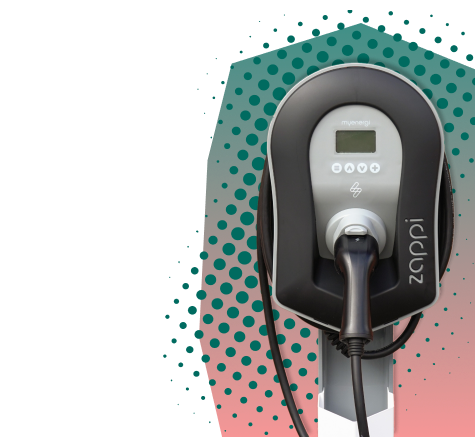What Is Greenhushing?
It appears there is a new trend amongst sustainability communications, and like some of the previous ones, it’s not really a good one. Everybody by now probably knows what greenwashing is – a process of conveying misleading information about how a company’s products are environmentally good. But have you heard about greenhushing? What does that even mean?
Greenhushing, sometimes also called eco-silence, refers to a companies under-communicating or refusing to publicize anything about the sustainability of its products or services. It is primarily driven by fear of being criticized for not doing enough in terms of sustainability pledges. It is also related to the before mentioned greenwashing, as companies want to avoid being accused of it, since it can cause irreversible damage to their image.
As consumer behavior keeps evolving and more people get educated on the importance of sustainability, there is a higher need for proof. According to small99, the unattainability of sustainability certifications to many businesses means that they might omit disclosing environmental pledges, as without certifications “it’s just empty words”.
 So, why is it a problem?
So, why is it a problem?
When companies decide to avoid disclosing sustainability information, the consumers and other stakeholders miss the chance to be informed and inspired about real progress. By that, the company misses the opportunity to inspire positive change and act as a role model to other organizations, who could take similar steps on their sustainability journey. It also prevents the consumers from making informed decisions about purchasing, if they’re looking to buy from a sustainable brand.
Additionally, greenhushing might lead to not attracting investors, who might be looking to fund sustainable businesses driving new technology that can have a positive impact on the planet.
What impact will it have?
As said by the CEO of South Pole, Renat Heuberger: “We see that the surveyed, sustainability-minded businesses are increasingly backing up their targets with science-based emissions reductions milestones, which is absolutely the right approach. But if a quarter today are not coming forward with details on what makes their target credible, could corporate “green-hushing” be spreading? The speed at which we are overshooting our planetary boundaries is mind blowing. More than ever we need the companies making headway on sustainability to inspire their peers to make a start. This is impossible if progress is happening in silence.”
Greenhushing can have a serious implications not only on quality of reporting on sustainability pledges, but also on progress when it comes to transition to a greener tomorrow. Companies that decide to not publicize their sustainability progress make climate targets harder to examine and limit knowledge-sharing when it comes decarbonization, sustainability and related topics. This can then lead to potentially less ambitious targets being set, and industries not collaborating with each other for the greater good of our environment.
As a collective, we need inspiring stories of progress to pave the way for more action and greenhushing will stop it from happening. Additionally, greenhushing will mean consumers seeking sustainable products will be misinformed, which can then derate them from purchasing, or make them purchase products based on fragmented information. Real progress will be impossible, if everyone stays silent.
 How can you avoid Greenhushing?
How can you avoid Greenhushing?
So, considering the impact greenhushing can have – what to do in order to avoid it? Here’s a few tips from us:
Be Clear And Honest
Avoid using confusing language and “trendy” words just to show you’re doing something in terms of sustainability. Try to keep things clear for your customers and stakeholders, by using accessible language. Also, communicating nothing is even worse than keeping sustainability claims at a minimum. Show your consumers what you’ve achieved so far and how you plan to continue in the future, which is something that will help you to build trust around your brand.
Communicate
Even if you do not have any hard evidence or data to prove something, don’t shy away from communicating your sustainability progress to stakeholders and consumers. Many people won’t expect tons of backing evidence for everything you do, as they do understand that certifications required to back environmental claims might be unattainable to small business. Encourage your customer base to choose more sustainable options and back it up with your own sustainability progress.
Be Transparent
Try to provide as much information on sustainability practices and processes you have in place, to stay as transparent as possible with your consumers. Aim at keeping the information as up to date as possible, so your customers and stakeholders can stay well informed.
Be Better Than The Day Before
Sustainability is an ongoing process and nothing can be achieved in just one day. Nobody expects you to be perfect from the get-go, so don’t refrain from speaking about areas where you can still improve. But don’t let that stop you from celebrating successes you’ve already had on your journey! Continually evaluate your goals and ambitions, and remain transparent about them. In that way you’ll keep yourself accountable and you’ll keep everyone around you informed.
Here at Storm4, we are passionate about all things GreenTech. That’s why we pride ourselves on working with the best talent in the sector, which can come in crucial when it comes to your hiring needs. If you need the talent to drive your mission, get in touch. As experts in GreenTech recruitment, we have an extensive pool of specialist, senior professionals, and are dedicated to helping connect talent to innovative businesses creating a more sustainable future.



 How can you avoid Greenhushing?
How can you avoid Greenhushing? 







